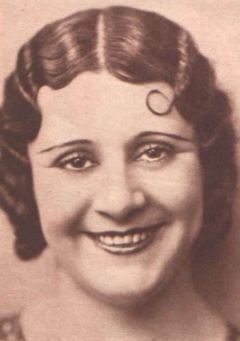
María Soledad Alvear Valenzuela, is a Chilean lawyer and former Christian Democrat politician, who was a cabinet member of the Aylwin, Frei and Lagos administrations. She was president of the Christian Democrat Party (PDC) from 2006–2008.

María de los Ángeles Felisa Santamaría Espinosa, known professionally as Massiel, is a Spanish pop and protest singer. She won the Eurovision Song Contest 1968 with the song "La, la, la", being the first performer from Spain to ever win the contest.

The Caravan of Death was a Chilean Army death squad that, following the Chilean coup of 1973, flew by helicopters from south to north of Chile between September 30 and October 22, 1973. During this foray, members of the squad ordered or personally carried out the execution of at least 75 individuals held in Army custody in certain garrisons. According to the NGO Memoria y Justicia, the squad killed 97 people: 26 in the South and 71 in the North.

José Luis Sáenz de Heredia was a Spanish film director. He was born in Madrid. His film Ten Ready Rifles was entered into the 9th Berlin International Film Festival.

Gloria Méndez Ramos, known professionally as Gloria Marín, was a Mexican actress. She was considered a celebrated female star of the Golden Age of Mexican cinema.

Rafael Hugo Fernández Silva is a Spanish actor. He attained notoriety for his portrayal of vulgar cop Lucas in television series Los hombres de Paco from 2005 to 2009.

Myriam Raquel Hernández Navarro is a Chilean singer, songwriter and television presenter. She has dabbled mainly in romantic ballad, which is why she is sometimes nicknamed "La baladista de América", although she has also fused her style with other genres such as electronics or hip-hop.

Arturo Fernández Rodríguez was a Spanish actor who appeared in numerous films since making his debut in 1954.
Patricio Andrés Lira Navarrete is a Chilean football manager and former football midfielder.
The naming customs of Hispanic America are similar to the Spanish naming customs practiced in Spain, with some modifications to the surname rules. Many Hispanophones in the countries of Spanish-speaking America have two given names, plus like in Spain, a paternal surname and a maternal surname.
Silvio Daer Fernández Dos Santos is a Uruguayan former footballer who played as a striker.
Patricio Antonio Almendra Cifuentes is a Chilean former footballer and current football manager.

Leonor Llausás Tostado was a Mexican television and film actress who appeared in over 100 works of film and television. She was nominated multiple times for the Ariel Awards and won a Best Actress award in 1955 from the film Los Fernandez we peralvillo, in 1975 won Diosa de Plata for Las poquianchis. She also was awarded the "Virginia Fabregas" medal of honor by the Mexican National Association of Actors.

María Teresa de las Mercedes Wilms Montt, also known as Thérèse Wilms Montt, was a Chilean writer, poet, and anarcha-feminist. Described as "embodying sexual aberrance and social prophesy", she was a friend of the writers Ramón Gómez de la Serna, Enrique Gómez Carrillo, Joaquín Edwards Bello, Víctor Domingo Silva, and Ramón Valle-Inclán.

Aurora Redondo Pérez was a Spanish actress.
Clara Obligado Marcó del Pont is an Argentine-Spanish writer.
José Ignacio "Nacho" Fernández Garcia is a Spanish football manager he is the current assistant coach of La Liga club Getafe.

Lux Balmaceda Pascal is an American-Chilean actress and transgender activist. She is known for her roles in the Chilean television series Veinteañero a los 40 and Juana Brava and the Chilean drama film The Prince.










